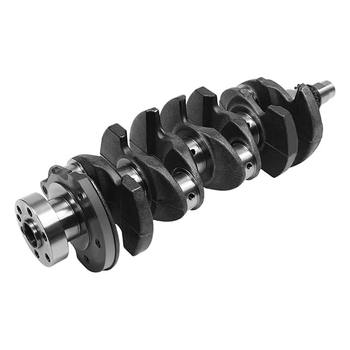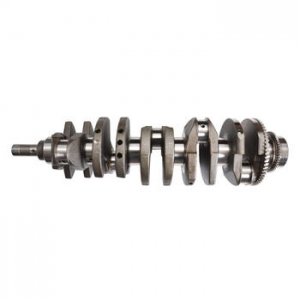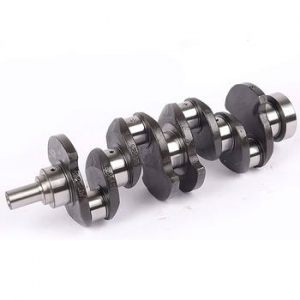Introduction
Have you ever wondered why some engines last for hundreds of thousands of miles while others barely make it past the 50,000-mile mark? As it turns out, one of the most critical factors is the quality of the crankshaft. In this article, we'll explore the importance of crankshaft quality and how it affects engine reliability and longevity.
The Crucial Role of the Crankshaft
The crankshaft is the heart of an engine. It converts the linear motion of the pistons into rotational motion, which ultimately drives the wheels. A poorly made or worn-out crankshaft can lead to catastrophic engine failure. That's why choosing a high-quality crankshaft is essential.
Material Matters
Crankshafts are typically made from cast iron or steel. Cast iron crankshafts are more affordable but heavier and less durable than their steel counterparts. Steel crankshafts, on the other hand, are lighter, stronger, and more resistant to wear and tear. For high-performance engines, forged steel crankshafts are the gold standard due to their remarkable strength and durability.
Manufacturing Processes Matter Too
The manufacturing process plays a significant role in determining crankshaft quality. Forged crankshafts are created by heating and hammering steel into shape, resulting in a denser, stronger material. On the other hand, casting involves pouring molten metal into a mold, which can lead to air pockets and weak spots. For optimal engine performance and longevity, choose a crankshaft made using a high-quality forging process.
Balancing Act: The Importance of Crankshaft Balancing
Interestingly enough, even the slightest imbalance in a crankshaft can result in excessive vibration, causing premature wear and tear on engine components. That's why crankshaft balancing is crucial. By adding or removing material from specific locations, manufacturers can ensure that the crankshaft is perfectly balanced, reducing vibration and promoting engine longevity.
Practical Applications
Now that we understand the importance of crankshaft quality let's look at some actionable tips:
Conclusion
In my experience, investing in a high-quality crankshaft is one of the best ways to ensure engine reliability and longevity. By choosing the right material, focusing on superior manufacturing processes, and prioritizing balancing, you can significantly extend the life of your engine. So, the next time you're working on your engine, remember: the crankshaft matters!




